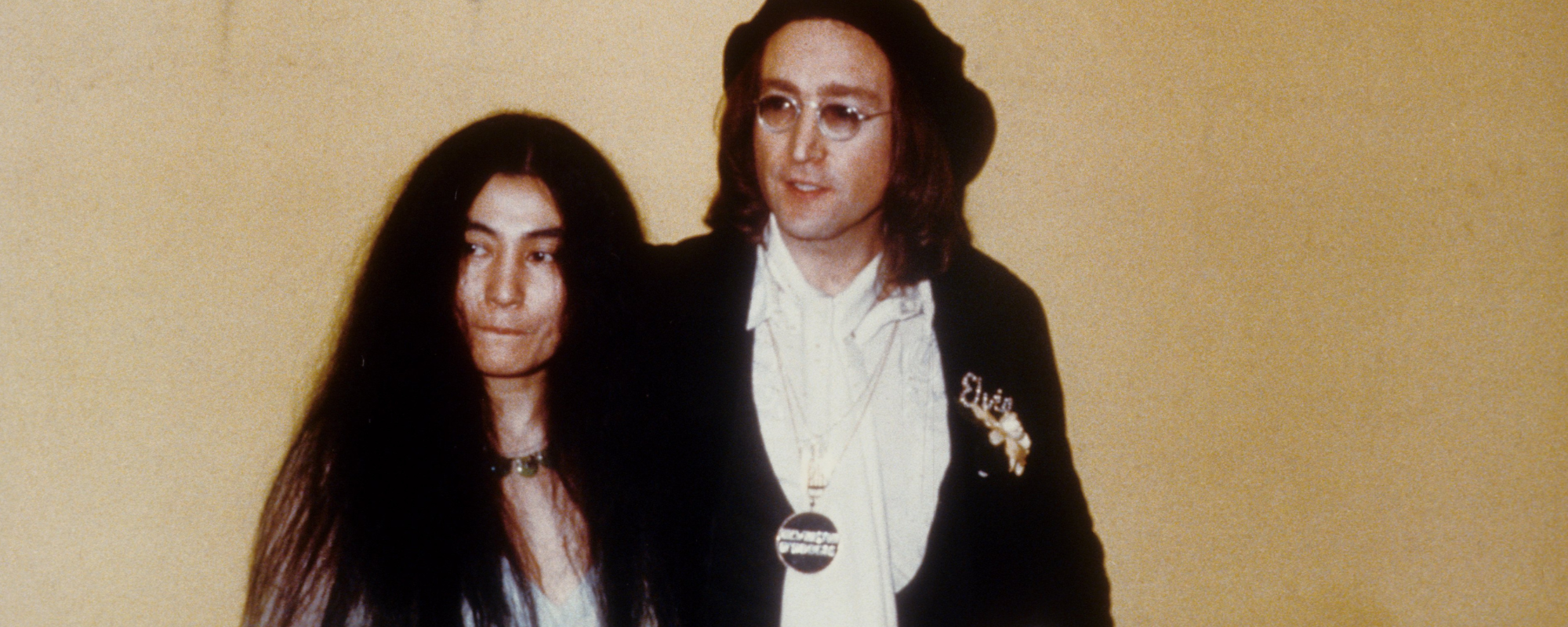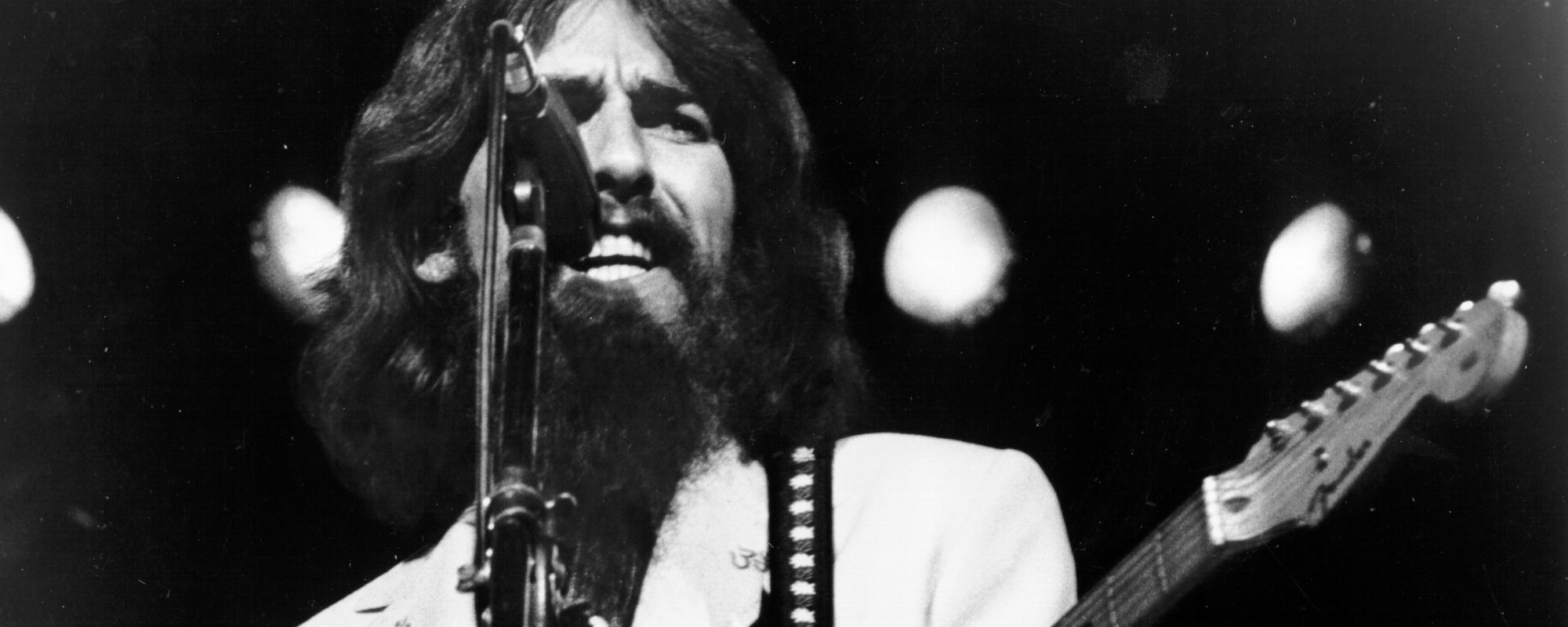Big Star’s second album, Radio City, now 50, is a vivid portrait of tender and confusing young love, neatly documented in short power pop songs.
Videos by American Songwriter
The album’s defining masterpiece is “September Gurls,” Alex Chilton’s longing heartache set to chiming chords and backed by his perfectly jagged Memphis rock band.
Bizarre Love Triangle
“September Gurls” was the last song Big Star recorded for Radio City in 1974. The sweet song distills Chilton’s love of ’60s British pop music and reflects the personal relationships he navigated at the time.
According to biographer Holly George-Warren, Chilton’s ex-wife Suzie left Memphis, Tennessee, for Texas while two other women in his life had begun dating other guys. They happened to all share September birthdays, and Big Star’s “pop masterpiece” resulted from Chilton’s “tumultuous love life.”
September girls do so much
I was your Butch, and you were touched
I loved you, well, never mind
I’ve been crying all the time
Drummer Jody Stephens clarified a lyric on Ardent Music’s YouTube channel and explained that “Butch” refers to a comic book dog, meaning “I followed you around like a little puppy.”
Additionally in George-Warren’s book A Man Called Destruction, bassist Andy Hummel said Chilton “was going through a lot of different girls that he was having relationships with kind of simultaneously, and a lot of what’s in those songs is him really just telling about his experiences with them, and how he felt about them.”
The song title gestures toward The Beach Boys’ “California Girls,” while the group’s layered guitars mirror the jangly sounds of another California band, The Byrds.
September girls, I don’t know why
How can I deny what’s inside?
Even though I’ll keep away
They will love all our days
William Eggleston’s Iconic Album Photography
The album cover features William Eggleston’s photograph titled Greenwood, Mississippi, also known as The Red Ceiling. Eggleston shot the photo in 1973 at a friend’s home and described the work as one of his most challenging.
He told the Getty Museum, “‘The Red Ceiling’ is so powerful that, in fact, I’ve never seen it reproduced on the page to my satisfaction. When you look at a dye-transfer print, it’s like it’s red blood that is wet on the wall. The photograph was like a Bach exercise for me because I knew that red was the most difficult color to work with.”
Eggleston’s work with Big Star introduced the photographer to a new audience. Furthermore, many bands have used his photographs, including Primal Scream (Give Out but Don’t Give Up) and Jimmy Eat World (Bleed American).
Power Pop Legacy
Though Big Star wasn’t commercially successful, Chilton’s power-pop songwriting greatly influenced R.E.M., The Replacements, and many others. The Replacements famously recorded a song called “Alex Chilton” for their 1987 album Pleased to Meet Me.
Following an awkward encounter between Paul Westerberg and Chilton, The Replacements singer—forgetting the title of “Watch the Sunrise”—told him, “I’m in love with that one song of yours; what’s that song?”
In the 1980s, Big Star’s music, specifically Chilton’s songwriting, became popular in the burgeoning college rock scene.
The outsized influence of Chilton’s songwriting versus his limited commercial success echoes artists like Gram Parsons and The Velvet Underground, who were equally responsible for future Hall of Fame artists.
Katy Perry and The Bangles
Katy Perry’s colossal summer hit “California Gurls” borrowed Chilton’s spelling and, like Big Star, also nodded to The Beach Boys’ classic. Perry’s manager is a Big Star fan and asked her to change the spelling from “girls” to “gurls” as an homage to Chilton.
The Bangles recorded a gorgeous cover of “September Gurls” on their 1986 album Different Light. The album also features their hits “Manic Monday” (written by Prince) and “Walk Like an Egyptian.”
A Record Label Mess Leaves a Classic Unavailable
Big Star’s record label, Memphis-based Ardent Records, used Stax to distribute its catalog. However, when Columbia Records began handling the catalog for Stax, Radio City and other titles weren’t made available in stores. As a result, the album sold very few copies and was a commercial failure.
It was a tumultuous time for the band. Following Big Star’s 1972 debut #1 Record, founder Chris Bell had already left the group. Meanwhile, the chaos in Chilton’s personal life led to a further breakdown in his mental health.
But the profound impact of “September Gurls” persists alongside the remainder of Big Star’s catalog. Two years after Radio City, Tom Petty and the Heartbreakers released their self-titled debut, and the closing song is “American Girl,” a clear descendant of Alex Chilton’s songwriting.
When you purchase through links on our site, we may earn an affiliate commission.
Photo by Michael Ochs Archives/Getty Images













Leave a Reply
You must be logged in to post a comment.